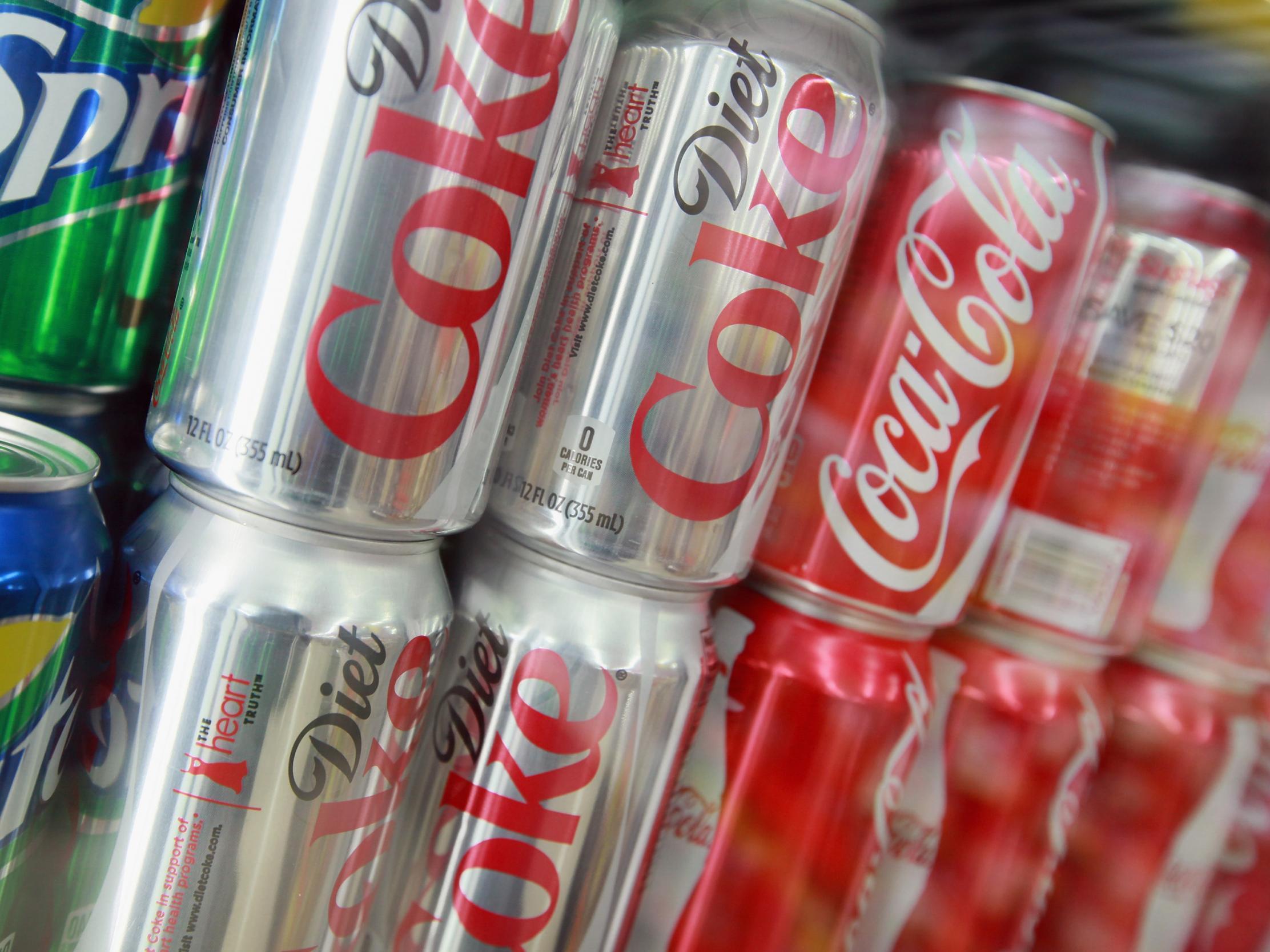No evidence swapping sugar for artificial sweeteners helps weight loss, major review warns
Review set to inform World Health Organisation guidelines shows diet drinks and sweeteners are no magic bullet for obesity or other health conditions

Your support helps us to tell the story
From reproductive rights to climate change to Big Tech, The Independent is on the ground when the story is developing. Whether it's investigating the financials of Elon Musk's pro-Trump PAC or producing our latest documentary, 'The A Word', which shines a light on the American women fighting for reproductive rights, we know how important it is to parse out the facts from the messaging.
At such a critical moment in US history, we need reporters on the ground. Your donation allows us to keep sending journalists to speak to both sides of the story.
The Independent is trusted by Americans across the entire political spectrum. And unlike many other quality news outlets, we choose not to lock Americans out of our reporting and analysis with paywalls. We believe quality journalism should be available to everyone, paid for by those who can afford it.
Your support makes all the difference.Replacing sugar with artificial sweeteners used in Diet Coke and other soft drinks has no effect on weight loss and their long-term health effects are still poorly understood, a major scientific review has said.
In the largest analysis of the health effects of non-sugar sweeteners to date, German researchers found little robust evidence to support claimed health benefits or to rule out increased harm from long term use.
A small number of studies showed slowed weight gain when sugar was replaced by sweeteners. However, from the 56 studies in the review, this effect was of “low or very low certainty” and there was no evidence that swapping to sweeteners could help obese patients lose weight.
Other studies raised fears that increased artificial sweetener consumption could increase cancer risk, but there was no such link found in the review.
The study, led by University of Freiburg, was published in The BMJ and also highlighted a stark lack research on the long-term health effects of sweeteners when taken over years or decades – in part due to the difficulty of enlisting people to take part in such a study.
A mounting obesity crisis in the UK and other developed nations has driven the proliferation of diet alternatives which use artificial sweeteners like aspartame, to replace more calorific sugar.
However the lack of long-term studies has meant fears of health risks have also risen, with one 2017 study warning daily diet drink consumption was linked to increased rates of stroke or dementia.
“Evidence for health effects due to use of [sweeteners] is conflicting,” said Dr Joerg Meerpohl in the paper.
“While some studies report an association between sweetener use and reduced obesity and risk of type 2 diabetes (thus suggesting a benefit for general health and the management of diabetes), other studies suggest that sweetener use could increase the risk of weight gain, diabetes and cancer.”
But after completing the review, the authors concluded: “No evidence was seen for health benefits from sweeteners and potential harms could not be excluded.”
In the UK the switch to sugar alternatives has been driven by a government levy on added sugar in soft drinks, which caused many manufacturers to cut out sugar, or raise the prices of their products.
Before Christmas, England’s most senior medic Dame Sally Davies said the government should extend the tax to sweets and crisps as the industry has failed to cut sugar levels voluntarily.
Meanwhile, figures released on Wednesday show that by the age of 10 children in England are consuming as much sugar as the maximum recommended for an adult.
UK academics commenting on the BMJ findings said that they still believed sweeteners to be better than sugar, adding that the largest and most well conducted trials in the study showed a more reliable benefit for reducing weight gain.
Professor Tom Sanders, a nutrition and dietetics expert from King’s College London who was not involved with the study, said: “The findings of this study are not surprising and confirm the view that artificial sweeteners are not a magic bullet to prevent obesity.
“Replacement of sugary drinks with artificial sweeteners helps prevent weight gain in children but is not superior to the preferred alternative – water.”
Join our commenting forum
Join thought-provoking conversations, follow other Independent readers and see their replies
Comments